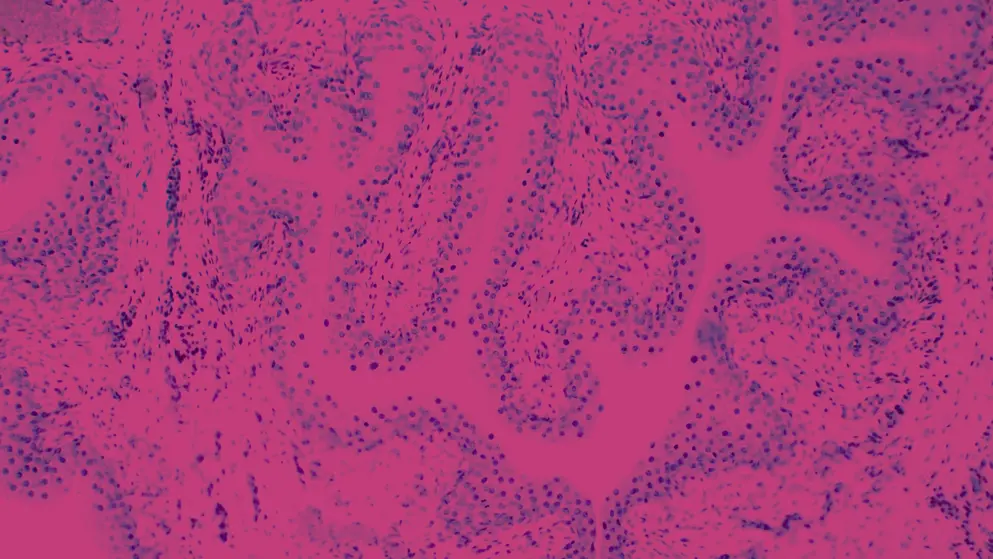
Managing High-Risk NMIBC
Transcript: Gary Steinberg on cretostimogene trials
Gary Steinberg, MD, FACS
Interview recorded June 2025. All transcripts are created from interview footage and directly reflect the content of the interview at the time. The content is that of the speaker and is not adjusted by Medthority.
What is cretostimogene and what needs does it address? Cretostimogene is a novel oncolytic immunotherapy that has been designed to be selective for bladder cancer, and so it has an an oncolytic virus that attaches to and invades specifically bladder cancer cells, and it causes viral killing and bladder cancer cell death. This creates what we call neoantigens, and neoantigens are also recognised by the immune system. The other novel part of cretostimogene is it has the GM-CSF gene, which is stimulatory for CD8 T cells. So in addition to getting the viral cancer cell killing, you also get an immune response and immune cell killing, which we think is critically important for the mechanism of action. Non-muscle invasive bladder cancer is the most common presentation for patients with bladder cancer. About 75% of patients present with non-muscle invasive disease.
This is a very, very large US, EU, and world problem in that there's at least five to 600,000 newly diagnosed bladder cancer patients every year. We clearly have a number of standard treatments throughout the world. In the United States, we use a lot of intravesical immunotherapy with something called Bacillus Calmette-Guerin, but it is in shortage. There's only one company that's FDA approved to make it in the United States, and it's in shortage. More importantly, it's an old immunotherapy, and it's time to create new and novel agents. And there are a good number of patients that respond initially to BCG, but then stop responding and have recurrences. And it's this population that cretostimogene is unique, and has, at least in the presented data and published data to date, shown really remarkable efficacy and durability in very hard to treat high-risk non-muscle invasive bladder cancer that does not respond to BCG any longer.
In addition, I think cretostimogene is potentially something to use in all different stages and grades of non-muscle invasive bladder cancer. There are some trials, the PIVOT-006 trial, there's also the CORE-008 trial, which is looking at BCG exposed, BCG naive high-risk, non-muscle invasive bladder cancer, so there's a wealth of of patients that do want these treatments, because if you look at the guidelines once patients stop responding to BCG, in the guidelines, radical cystectomy is a standard of care option. And so patients would clearly do everything they can, or clearly want to avoid having to lose their bladder. What is the clinical trial programme for cretostimogene? It's actually quite robust.
There has been data presented in the CORE-001 trial this is looking at patients who are BCG unresponsive, carcinoma in situ, that have been all been treated with a combination of cretostimogene and pembrolizumab, which is checkpoint inhibitor, a PD-1 immune checkpoint inhibitor. CG Oncology has also presented data from the BOND-003 trial. This is patients with BCG unresponsive high-risk carcinoma in situ, non-muscle invasive bladder cancer, carcinoma situ treated with cretostimogene in a phase three, open, single-arm, open-label trial. And they presented data at 12 months, and the data presentation is ongoing. Showing some really impressive durable complete responses, which is what the whole concept behind oncologic immunotherapy is, to create T-cell memory so that you have a, you know, it's one thing to have a complete response, we want it to last a long time.
And then there's also, there's a trial looking at PIVOT-006, which is looking at intermediate risk, non-muscle invasive bladder cancer randomised trial. There's the CORE-008, which is accruing patients BCG naive, BCG exposed, combination with gemcitabine. So there's a lot of activity in the high-risk non-muscle invasive bladder cancer space, in addition to the BOND-003 that is ongoing. A lot of these are pilot trials. You know, will they lead to package labelling or will they lead to guidelines? Probably more likely guidelines because a lot of them are single-arm, open-label, phase three trials. There's also the work that Roger Li has done looking at cretostimogene as a neoadjuvant therapy prior to cystectomy, and that data has been published. And again, also looking at updates, but portfolio of trials for cretostimogene is almost kinda like, flooding the zone in that you have a pretty much a trial for all patients other than low-risk non-muscle invasive bladder cancer.
With more patients who are being treated with cretostimogene, we certainly are looking at the treatment-related adverse events, and finding very few treatment-related adverse events. Certainly, no discontinuations and no grade three or four treatment related adverse events. Patients in general tolerate it similarly to intravascular BCG. There is a step where we wash out the bladder prior to putting the cretostimogene to knock off the GAG layer, and so they're looking at ways to make that even more streamlined and more efficient. But I think that we're waiting to see the 24 month data from the BOND-003 trial. It's a single-agent cretostimogene. The 12-month durability is clearly the, appears to be best in class that has been presented to date.
And then again, looking forward to seeing the PIVOT-006 trial, which is the intermediate risk, which is accruing very well, to see if we can treat patients with intermediate risk non-muscle invasive bladder cancer with better therapy, 'cause it is a large unmet need. And then, if and when cretostimogene is FDA approved, it'll be important to have data already in the BCG exposed, in the BCG resistant, refractory, so forth to see data that we already have, and to start beginning to see cretostimogene in earlier stages of high-risk non-muscle invasive bladder cancer.
Developed by EPG Health. This content has been developed independently of the sponsor, Pfizer, which has had no editorial input into the content. EPG Health received funding from the sponsor to help provide healthcare professional members with access to the highest quality medical and scientific information, education and associated relevant content. This content is intended for healthcare professionals only.

